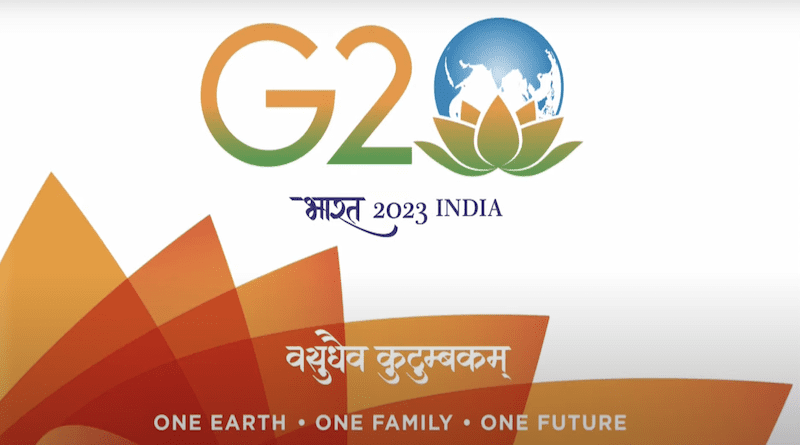G-20 Summit And Looming Global Security Challenges – OpEd
As world leaders prepare to meet in New Delhi for the forthcoming G20 meeting that will be held on 9 and 10 September the emphasis continues to be on encouraging international cooperation and making significant progress on urgent global concerns. While the absence of Chinese President Xi Jinping and Russian President Vladimir Putin has garnered notice and brought up expressions of disappointment from leaders of western nations including the United States, this gathering of powerful leaders offers a chance to discuss several critical issues.
The G20 summit was initially intended to address problems like food security, debt management and climate change, but it has steadily evolved into a platform for negotiating the complexity of global geopolitics. The deepening divisions over the ongoing crisis in Ukraine have prevented the member nations from reaching a consensus, even on the most basic issues. The absence of an agreed-upon communique at the ministerial meetings earlier this year highlights the magnitude of the challenge facing the leaders who will gather in New Delhi.
The absence of Russia from the summit, together with China’s choice to send a representative rather than its top leader, underlines their current stance toward reaching a consensus. These choices can indicate some reluctance from both countries to fully participate in the summit’s agreement-building processes. Consequently, it is expected that western leaders would lead the summit’s proceedings, thereby restricting avenues for cooperation among non-western states.
In his role as the summit’s host, Indian Prime Minister Narendra Modi seeks to strengthen India’s position as a global economic powerhouse and a leader from the Global South. Given the repercussions of a fragmented world order and the opportunity for states to align more closely, the quest for consensus at the G20 meeting acquires enormous significance. It is noteworthy that President Biden, according to the White House, plans to commend Modi for his leadership within the G20 framework and is scheduled to hold a meeting with him on September 8 in advance of the G20 summit in New Delhi.
The influence of shifting global dynamics on the steadfastness of major participants’ positions is highlighted by contrasting it with the Bali Summit 2022. The ongoing crisis in Ukraine has resulted in a more entrenched posture among governments, in contrast to earlier summits that witnessed last-minute declarations, making unanimity on any issue, including the Ukraine situation, progressively more difficult to achieve.
Canada’s Prime Minister Justin Trudeau and Russian Foreign Minister Sergei Lavrov have already signaled their intentions. Trudeau, voicing disappointment over Ukraine’s exclusion, pledged strong support for Ukraine. On the other hand, Lavrov made it clear that Russia would block the final declaration of the G20 summit unless it reflects Moscow’s position on Kyiv and other crises. Diplomats are skeptical about any acceptance of Moscow’s stance, raising concerns that the summit may end up issuing a non-binding or partial communique.
China’s expansion of the BRICS group underscores its vision for reshaping global dynamics. President Xi Jinping’s noteworthy absence from the G20 summit may shift attention to the BRICS, but it also adds challenges to the G20 discussions that might hinder the development of important global issues. The disparity in climate change targets between wealthy and poor nations has long been a problem for the G20. Despite the fact that there were conversations during the group’s sessions in July, it is doubtful that there are going to be substantial changes at the forthcoming summit in this field.
The G20 conference in New Delhi presents a significant chance for international collaboration, despite the absence of certain significant leaders. Even while geopolitical dynamics and the war in Ukraine pose difficulties, there is still hope that world leaders will be able to put aside their differences, find common ground and tackle urgent global issues. The future of international collaboration and the fate of the G20 are in question as the world watches. The outcomes of this summit will certainly have an impact on global governance in the long run as well as the immediate landscape of international diplomacy.

